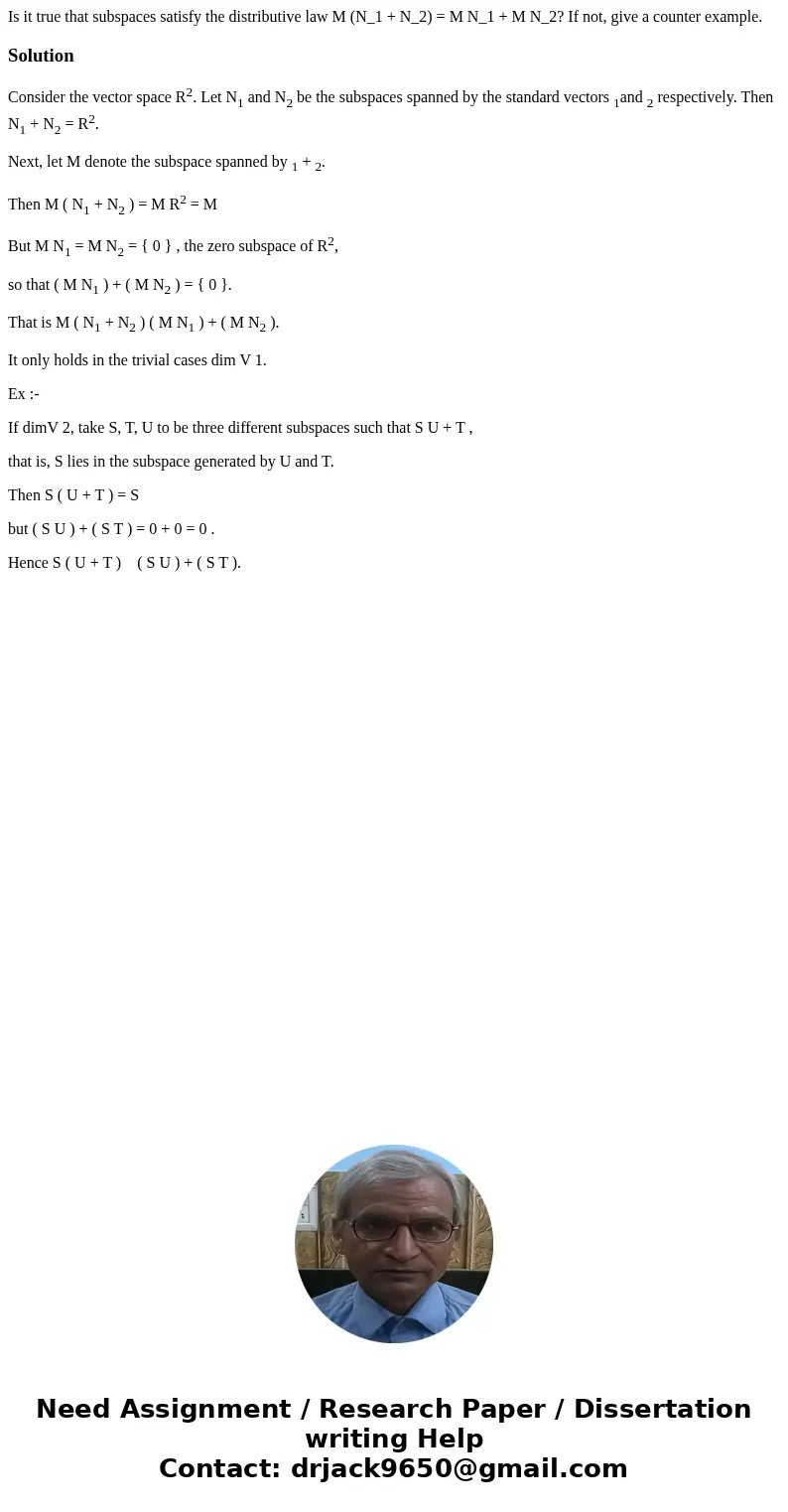Is it true that subspaces satisfy the distributive law M N1
Is it true that subspaces satisfy the distributive law M (N_1 + N_2) = M N_1 + M N_2? If not, give a counter example.
Solution
Consider the vector space R2. Let N1 and N2 be the subspaces spanned by the standard vectors 1and 2 respectively. Then N1 + N2 = R2.
Next, let M denote the subspace spanned by 1 + 2.
Then M ( N1 + N2 ) = M R2 = M
But M N1 = M N2 = { 0 } , the zero subspace of R2,
so that ( M N1 ) + ( M N2 ) = { 0 }.
That is M ( N1 + N2 ) ( M N1 ) + ( M N2 ).
It only holds in the trivial cases dim V 1.
Ex :-
If dimV 2, take S, T, U to be three different subspaces such that S U + T ,
that is, S lies in the subspace generated by U and T.
Then S ( U + T ) = S
but ( S U ) + ( S T ) = 0 + 0 = 0 .
Hence S ( U + T ) ( S U ) + ( S T ).

 Homework Sourse
Homework Sourse